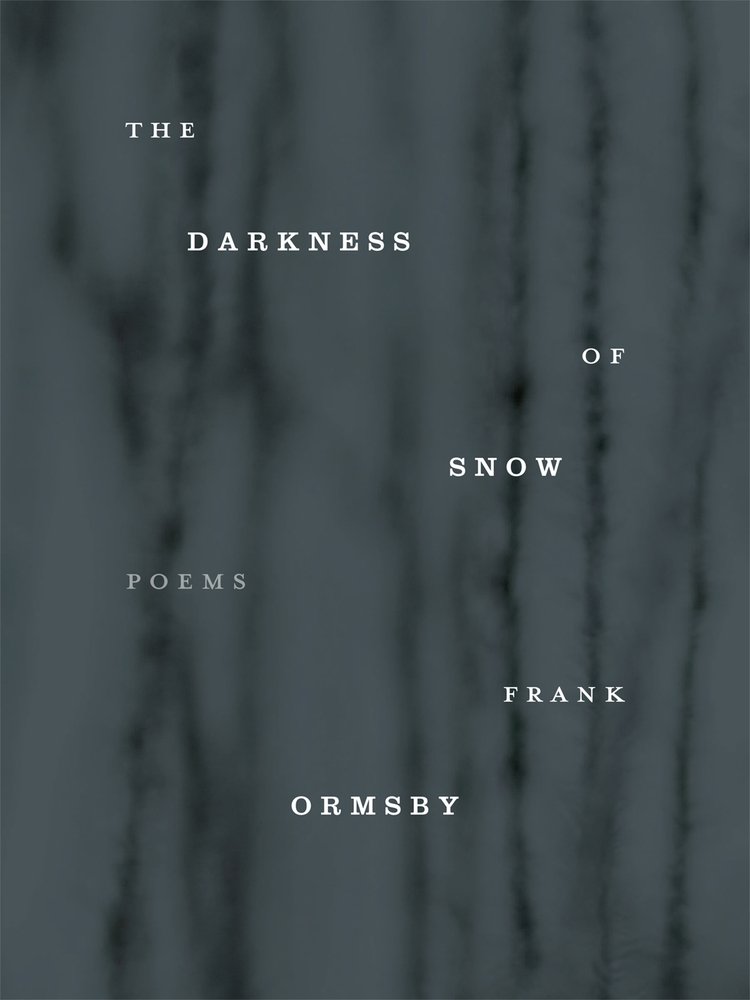In the 30 Books in 30 Days series leading up to the March 15 announcement of the 2017 National Book Critics Circle award winners, NBCC board members review the thirty finalists. Today, NBCC board member Tess Taylor offers an appreciation of poetry finalist Frank Ormsby’s 'The Darkness of Snow' (Wake Forest University Press).
 “Where I grew up the fields had names,” begins one of the sections of Frank Ormsby’s lucid, funny, and also bittersweet book of poems. Ormsby, a contemporary of Paul Muldoon and Michael Longley who spent his career teaching high school in downtown Belfast, now offers up a late-life collage of what he calls “practical affections.”
“Where I grew up the fields had names,” begins one of the sections of Frank Ormsby’s lucid, funny, and also bittersweet book of poems. Ormsby, a contemporary of Paul Muldoon and Michael Longley who spent his career teaching high school in downtown Belfast, now offers up a late-life collage of what he calls “practical affections.”
These are poems of memory and survival, which cast wry eyes both on childhood (“Altar Boy Economics”) as well as the new mysteries of living Parkinson’s. In poems that are “strangely human and visible all the way” Ormsby’s verses skirt both sadness and violence: they take in the unmarked graves of others’ babies, even as they glimpse the “faults in the self.” They study Irish paintings, and savor the “sweet gravy” of a friendship that grounds, but they also hear the wind passing through willow trees planted for the dead. They begin in the Northern Irish counties of Ormsby’s youth, and end in the testimonies of the war tribunal.
All in all, the bright clarities in these verses are deceptively simple—short fables or fleet beams that leave an eerie afterglow. If these poems are durable, they are marked by the fragility of things. Like the Northern Irish peace, they feel hard earned. Every verse, alive with deft wit, also recalls some mortal margins, or, as Ormsby puts it, plays also “the music of last things.”

